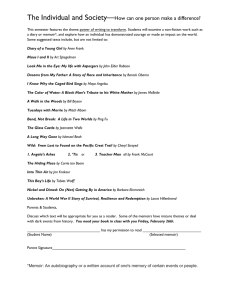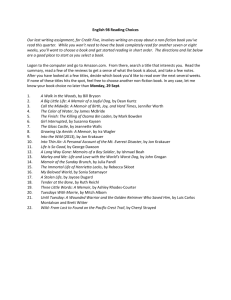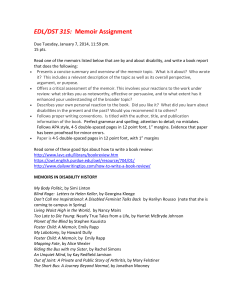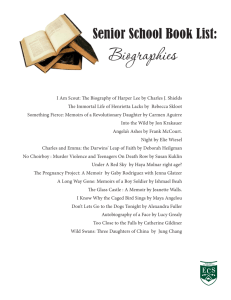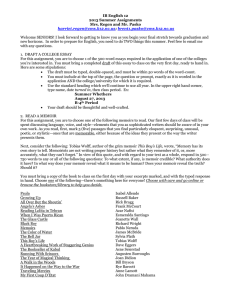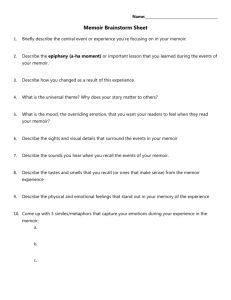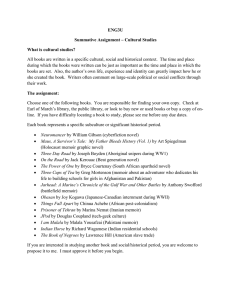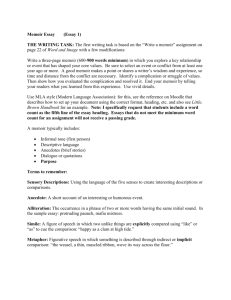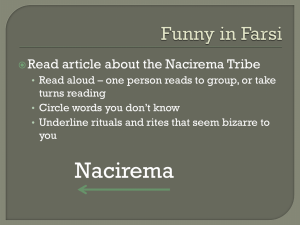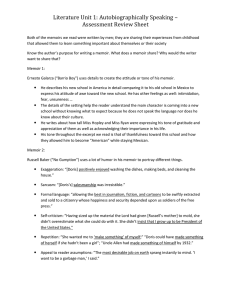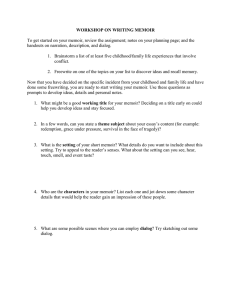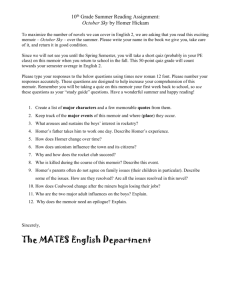Writing a Memoir: Guide for Students
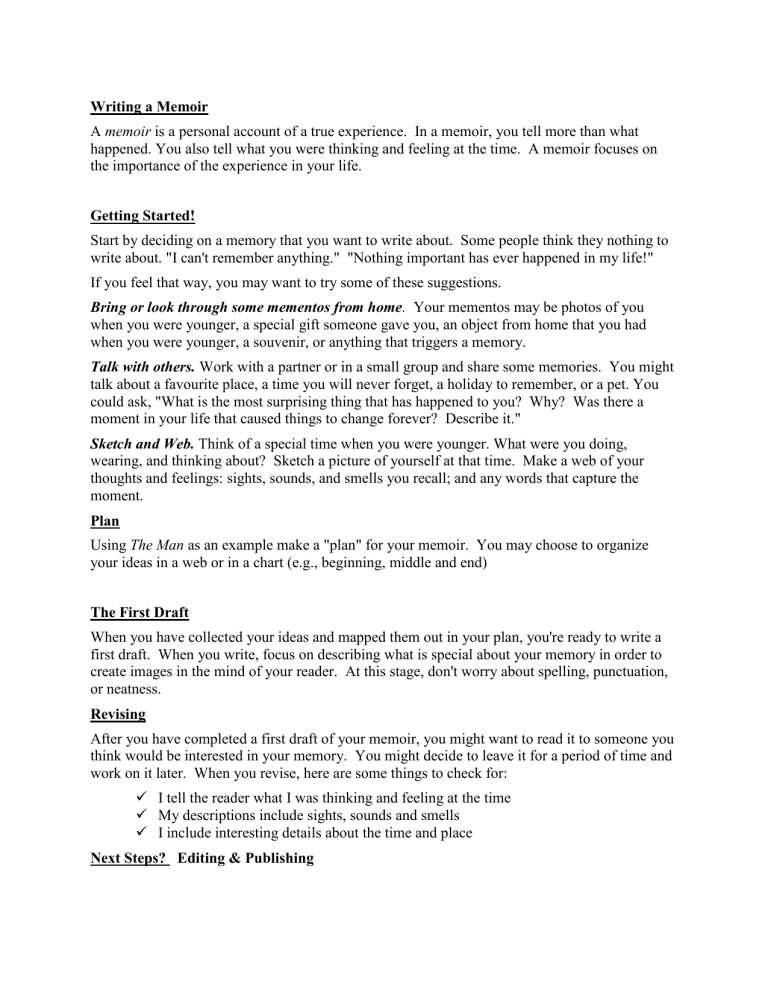
Writing a Memoir
A memoir is a personal account of a true experience. In a memoir, you tell more than what happened. You also tell what you were thinking and feeling at the time. A memoir focuses on the importance of the experience in your life.
Getting Started!
Start by deciding on a memory that you want to write about. Some people think they nothing to write about. "I can't remember anything." "Nothing important has ever happened in my life!"
If you feel that way, you may want to try some of these suggestions.
Bring or look through some mementos from home.
Your mementos may be photos of you when you were younger, a special gift someone gave you, an object from home that you had when you were younger, a souvenir, or anything that triggers a memory.
Talk with others.
Work with a partner or in a small group and share some memories. You might talk about a favourite place, a time you will never forget, a holiday to remember, or a pet. You could ask, "What is the most surprising thing that has happened to you? Why? Was there a moment in your life that caused things to change forever? Describe it."
Sketch and Web. Think of a special time when you were younger. What were you doing, wearing, and thinking about? Sketch a picture of yourself at that time. Make a web of your thoughts and feelings: sights, sounds, and smells you recall; and any words that capture the moment.
Plan
Using The Man as an example make a "plan" for your memoir. You may choose to organize your ideas in a web or in a chart (e.g., beginning, middle and end)
The First Draft
When you have collected your ideas and mapped them out in your plan, you're ready to write a first draft. When you write, focus on describing what is special about your memory in order to create images in the mind of your reader. At this stage, don't worry about spelling, punctuation, or neatness.
Revising
After you have completed a first draft of your memoir, you might want to read it to someone you think would be interested in your memory. You might decide to leave it for a period of time and work on it later. When you revise, here are some things to check for:
I tell the reader what I was thinking and feeling at the time
My descriptions include sights, sounds and smells
I include interesting details about the time and place
Next Steps? Editing & Publishing
Rubric: Quick Scale: Grade 7 Personal Writing – Meaning (Ideas) , Style (Voice, Word
Choice & Sentence Fluency), Form (Organization) & Conventions
